A Sport Grows in Brooklyn: LIU to Add Women’s Water Polo in 2019
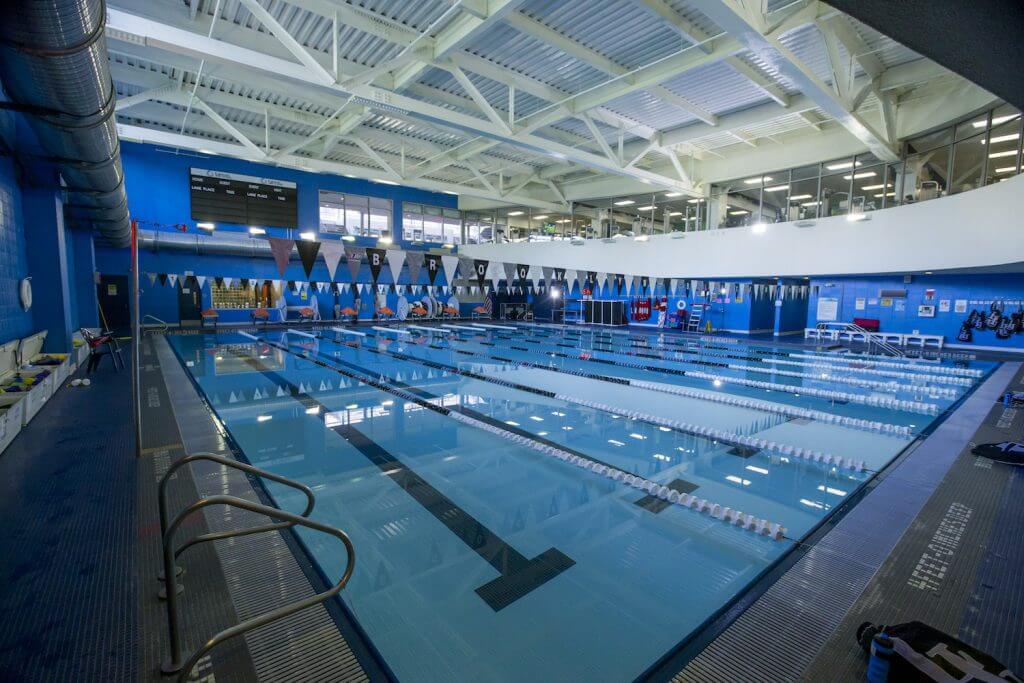
By Michael Randazzo, Swimming World Contributor
In a development that can only be described as unexpected, the Brooklyn campus of Long Island University recently posted a head coaching position for a proposed Division I women’s water polo team. Known primarily for success in men’s basketball, women’s volleyball and women’s softball, in approximately a year’s time the Blackbirds—whose campus is located minutes away from downtown Manhattan—will join DI women’s polo programs at St. Francis Brooklyn and Wagner College, marking New York City as a surprisingly fertile region for the sport.
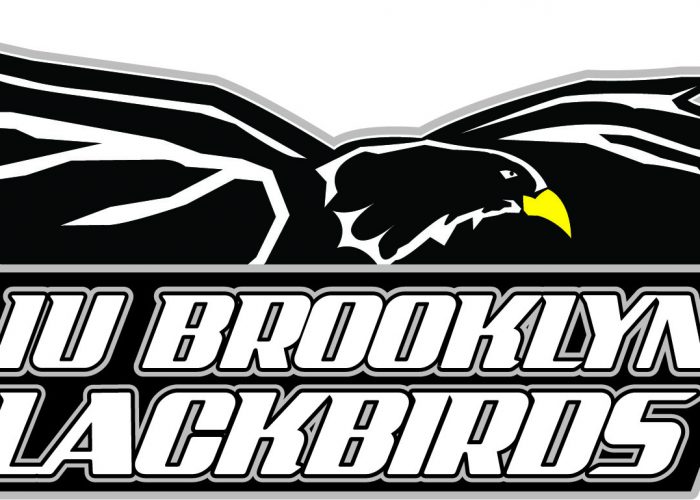
At the center of LIU Brooklyn’s effort to grow polo is Margaret Alaimo, Deputy Director of Athletics and Senior Woman Administrator for the school’s athletics department. Like most New Yorkers, the Brooklyn native’s familiarity with polo is limited, though the sport is not entirely new to her. During her undergraduate years as a star basketball player, the St. Francis graduate (1987) cheered on the Terriers’ men’s polo team, at the time one of a handful of programs on the East Coast.
Now in her 29th year as a member of the LIU community, Alaimo wears many hats for the school’s 17 intercollegiate athletic teams. Besides handling the athletic department’s day-to-day operations, she also oversees the department’s scholarship budget, transportation needs and the welfare of Blackbird student-athletes.
Alaimo spoke recently to Swimming World about the challenges of building a polo program from scratch in Brooklyn—including a proposal to join the Metro Atlantic Athletic Conference (MAAC)—the prospect of facing local rivals St. Francis and Wagner in a new sport and her long-standing commitment to creating intercollegiate athletic opportunities for women.
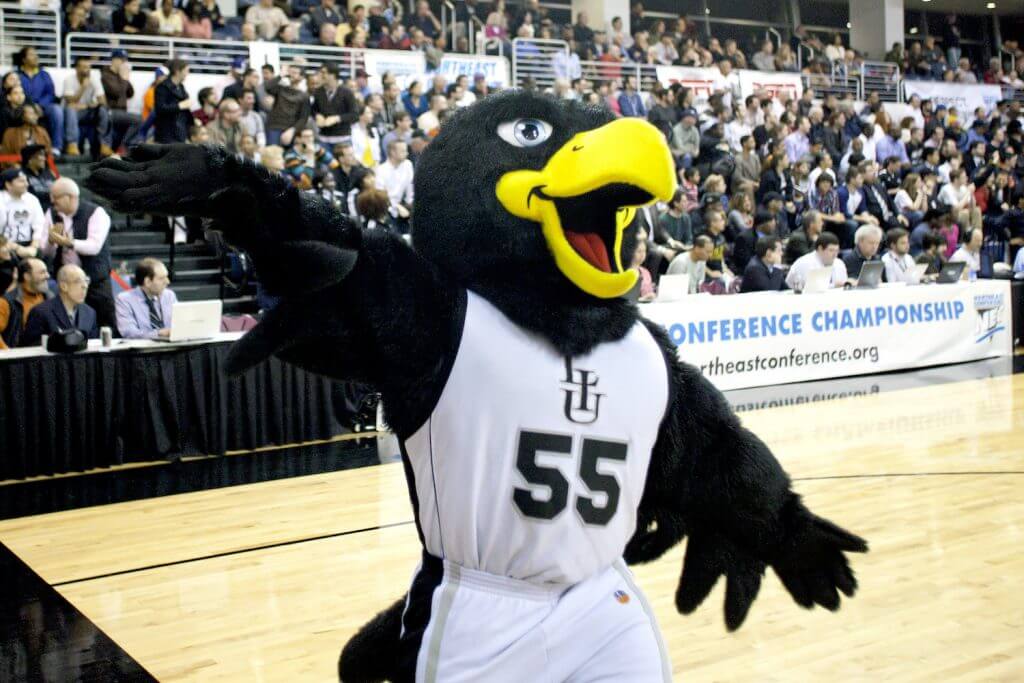
LIU Blackbird: coming to a pool near you! Photo Courtesy: LIU Brooklyn Athletics
– Why is a university in Brooklyn looking to bring in water polo?
As an urban campus with a pool, we thought it would be a great sport to start. We know there’s a lot of good, local competition and we think we can get into the MAAC and compete right away.
Our student athletes are really good in the classroom and, being able to bring more women into our community that are good students and athletes, we could get [a program] up and running—and be good at it—really quickly. Our campus is 70% female, and it’s our goal to offer athletic opportunities that mirror [our population]. This is just another step forward to meeting that goal.
– Is the LIU pool ready for Division I competition?
My familiarity with water polo was being at St. Francis College and attending water polo matches when I was an undergraduate. We always thought that with a shallow pool we couldn’t compete or be able to host quality home events, but, from what I understand there are a lot of shallow pools on the East Coast. It’s not ideal, but you can do deep water training on one end sideways.
I’m not saying we’ll definitely alter the depth of the pool. Right now we’re going to try and use it as is. It’s still evolving as we go forward.
– How does polo fit into the Blackbird sports scene?
A number of years ago, institutions would go out and survey their students and see if there was interest in any programs. From those surveys they would see if they could accommodate that interest. Ours is a non-traditional campus, right in the heart of Downtown Brooklyn, and the age of our students tends to be higher than normal. We sometimes we get an older student that starts college then leaves for personal reasons or has to work and come back to further their education. So gauging the athletic interests of older students isn’t a thorough way to do it.
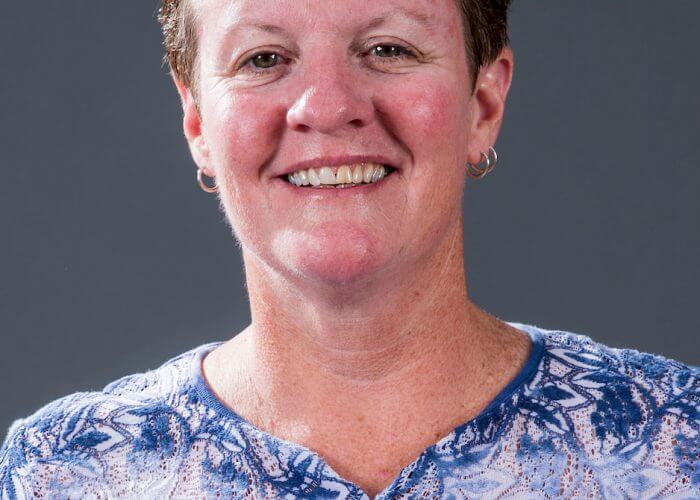
Margaret Alaimo. Photo Courtesy: LIU Brooklyn Athletics
We’ve look to identify sports that we have facilities for and that we think we could have access to post-season opportunities and to conference affiliates, in this case the MAAC. The Northeast Conference (NEC) [where LIU plays the majority of its conference games] doesn’t have water polo, but there are several NEC schools that do. Maybe we will get to a point where we could offer more championship opportunities for women in the NEC. We are discussing that at the conference level also.
It’s been a priority for the institution to expand opportunities for women—it goes back to 1993—the addition of the first one was volleyball in 1994 and we went to soccer, golf, lacrosse, swimming, bowling and so on. Now we’re trying to do two at once, which we have not done before. The other sport is women’s ice hockey.
– The MAAC seems like the most likely landing place for conference play; what is the status of LIU’s application?
What the MAAC is concerned about is: if we are going to come in and fund [our program] at the level that Wagner will, will they be bringing in another NEC school to dominate the league? I’ve assured them that we are not going to operate at the same level right away that Wagner is. Wagner has invested more in their water polo program than other MAAC schools. [The conference] is striving to get to the point where funding is somewhat equal or competitive, so that [all schools] will all have similar success.
– How long will it take for your program to be competitive?
Maybe not 3 to 5 years, probably 2 to 3. We feel like we could be up and running, have a healthy sized roster and the skill level to compete for a championship. Our experiences with the MAAC in field hockey were very positive. We don’t anticipate too much difficulty being accepted as an associate member. That is going to be vital and the first question for whomever we hire. We’re anxious to hear back from the MAAC, since their administrators are meeting this week or next week, and we’re on the agenda for consideration.
– Is the coaching position full-time?
We’ve posted the position as full-time. Since 1993 our goal has been to bring in a full-time coach a year in advance to give them an opportunity to recruit. With the roster, which we hope to be 22 [athletes], they need a go-to person on campus because it’s more than just in the pool and practice. There’s academic support, and someone needs to run interference on the many issues that student athletes have. We have the infrastructure to support our students, but the coach plays a pivotal role in that on a daily basis.
– LIU is now entering its fourth year as a DI swim program; is it possible there will be a link between the two programs (i.e. that some polo players will also be swimmers)?
Our goal is to have two separate squads, just because there is such a difference [between the two sports] and student athletes already have such time demands in one sport that doubling up is too much. There are some really gifted, talented young ladies that probably could handle both, but we’ll cross that bridge when we get to it.
We occasionally have a two sport athletes; most times it’s been soccer and lacrosse. Those are two different seasons and we manage that well, but the swimming and water polo [seasons] overlap enough that it would be very difficult for a student athlete.
But we’ll see. We’re not going to deny somebody that opportunity if we feel like they can maintain success in the classroom and in the pool. It’s about their health and welfare; the wear and tear of being a Division 1 swimmer and water polo player—that’s a lot on a student.
– What’s your thinking about recruiting – the size of the team, bringing in international players, finding the right athletes to thrive on an urban campus?
[These are] the types of questions and conversations we’re going to be asking in the interview process. If we have to adjust along the way, we will.
Being in New York City is a real attraction for international students. We have approximately 45 international students that play key roles on our teams right now. It would be easier to attract them here, but it becomes a financial decision for them and for us. The investment that they can make and then with us working with them financially to make it work.
We’ll recruit nationally and internationally, like we do in all our other sports. Softball is probably the best one to compare it to. The majority of our kids are from the West Coast because that’s the pocket or the place that we’ve found the most students that are strong academically and athletically and contribute a lot to the LIU Brooklyn community.
We’re going to invest in recruiting this year to get it up and running. We are coming up on a vital recruiting period during this summer, so we’re a little anxious to get moving on this search. I’ve spoken to several candidates and hope to have phone interviews in the next couple of days and then in person in the next 8-10 days to get people to the campus.
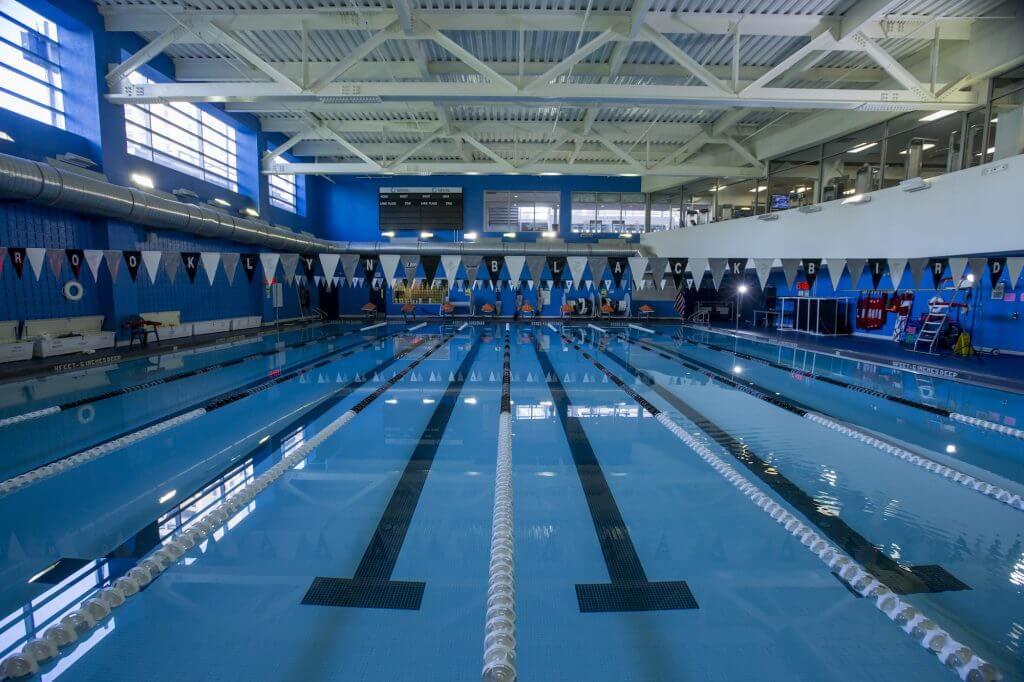
A pristine indoor facility. Photo Courtesy: LIU Brooklyn Athletics
– What are you looking for in a coach?
Some of the things we’ve always looked for in a coach or in our staff is those who have played the game and coached the game at the collegiate level. If we could secure someone with head coaching experience that would be huge because there is a big difference between being an assistant coach and a head coach.
We’re trying to find someone who’s humble, a good communicator, hardworking and somebody that I would want my son or daughter to play for. I always put my mother’s hat on, as a parent I look for those qualities as if they were my own children that would come here and play.
The conversations I’ve had are good and I learn from every conversation. I’m not an expert in women’s water polo, but I wasn’t in field hockey or lacrosse or even golf when we started the golf program in 1999. I learned through the process and from the professionals I met along the way. Now I’m anxious to get somebody here to help put the finishing touches on our plans. We have a general vision for what this will be, but the person we hire is going to come in and help us fine tune a sustainable plan and model for success.
– If the Blackbirds do join the MAAC, two long-time rivals await: St. Francis Brooklyn and Wagner. What is your expectation about playing the Terriers and the Seahawks in a whole new arena (the pool)?!
Having local competition is fun. It’s in multiple sports, whether it’s men’s and women’s basketball or in swimming, we’ve been competing, going back and forth. Wagner has done really well in swimming as well.
Our coaches are friends, they pick each other’s brains. When they’re out on the road recruiting, they often sit together and we’re vying for some of the same student athletes.
As administrators, we’re close to St. Francis and Wagner. They’re all good people and we’re not reinventing the wheel, so we can see a model for what’s worked and what hasn’t. We’re trying to find our niche in the water polo community. If we hire the right person, we’ll be right there, competing in a year. That’s why who we hire is so key. We’re excited about and the next 2 to 3 weeks! Hopefully you’ll be able to sit and have a conversation with that person.



